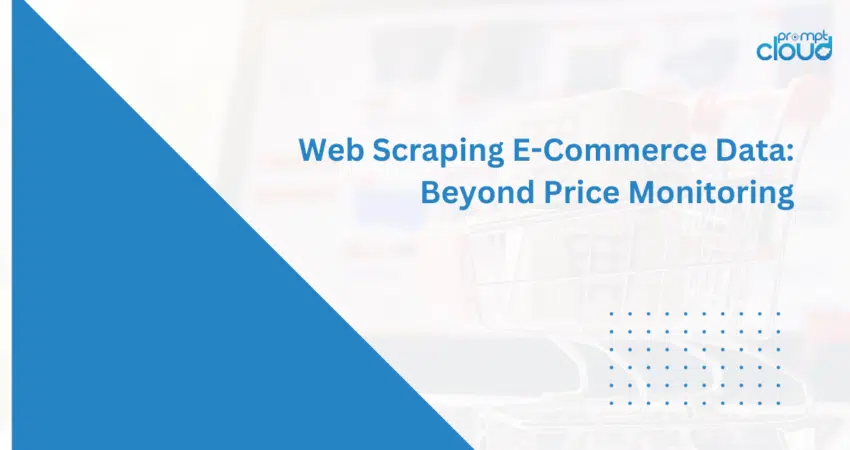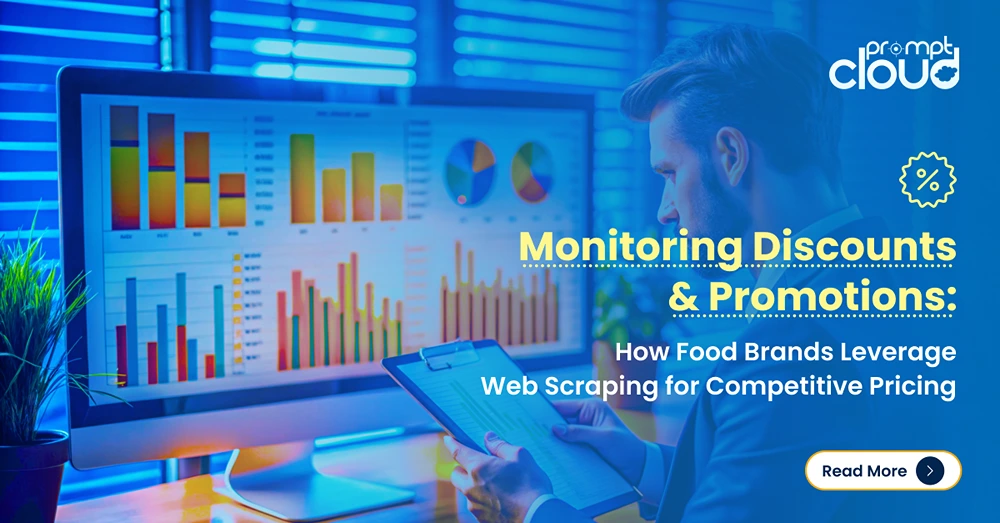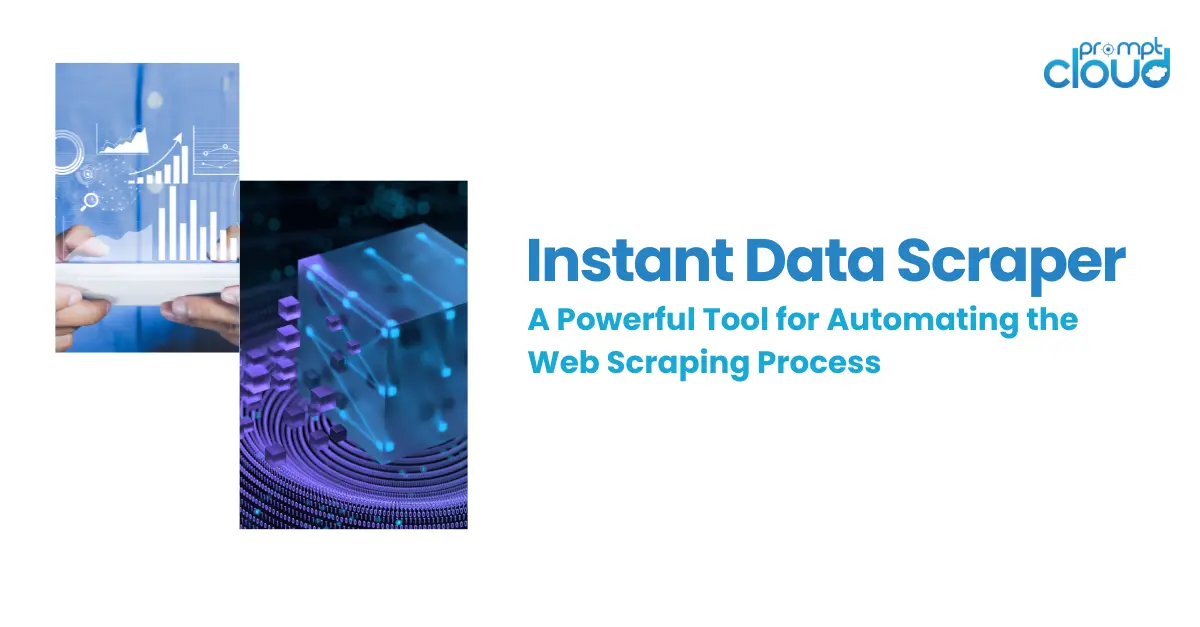
Web scraping e-commerce data offers priceless insights to e-commerce enterprises, empowering them to make well-informed decisions, optimize operations, and elevate the overall customer experience. In this article, we will explore the benefits of utilizing web scraping in e-commerce, its wider applications beyond just monitoring prices, and factors to consider when choosing the right web scraping service provider.
Benefits of Web Scraping for E-commerce
A. Real-time Data Insights
E-commerce enterprises utilize web scraping to acquire up-to-the-minute data from various online sources, covering product details, customer reviews, pricing information, and more. The aggregation of this data provides businesses with valuable insights into consumer behavior, market trends, and product performance. Armed with real-time data insights, companies can maintain agility and promptly adapt to market changes, enhancing their competitiveness.
B. Improved Decision-Making
With access to comprehensive data, e-commerce businesses can make data-driven decisions. Examining data gathered from web scraping, businesses can discern patterns, trends, and potential opportunities within historical and present information. This data can also help in determining the best pricing strategies, optimizing inventory levels, and identifying potential areas for growth. Ultimately, improved decision-making leads to better business outcomes.
C. Operational Efficiency and Time Savings
Automating the data collection process through web scraping eliminates the necessity for manual data entry, thereby minimizing the likelihood of human error. By automating the gathering of data from multiple sources, e-commerce businesses can save time and resources. This enables them to concentrate on analyzing the data and devising strategies to foster growth. Additionally, web scraping e-commerce data can help streamline inventory management, ensuring that products are always available and reducing the risk of stockouts.
Image Source: https://www.netsolutions.com/
Price Monitoring: The Basics
Price monitoring is one of the most common use cases for web scraping in e-commerce. By regularly scraping competitor websites, online marketplaces, and other sources, businesses can monitor prices in real-time. This not only helps them stay competitive but also helps in adjusting pricing strategies to maximize profits.
Web scraping for price monitoring involves extracting product information, including prices, discounts, and product descriptions. This data can be used to analyze how competitors are pricing their products, identify pricing trends, and make strategic pricing decisions accordingly.
Beyond Prices: The Power of Comprehensive Data
While price monitoring is important, web scraping offers a wealth of other valuable data for e-commerce businesses. Here are some areas where web scraping can provide comprehensive data beyond just prices:
A. Product Availability and Inventory Tracking
Web scraping e-commerce data enables the monitoring of product availability across different platforms. By scraping information on stock levels, businesses can ensure that popular products remain in stock, minimizing the risk of losing sales due to stockouts. This data can also be used to forecast demand and optimize inventory levels, reducing carrying costs and improving order fulfillment efficiency.
B. Competitor Analysis and Market Trends
Analyzing competitors is crucial for any e-commerce business. Web scraping enables businesses to collect information about competitor products, pricing strategies, promotions, and customer reviews. By comprehending how competitors position themselves in the market, businesses can make well-informed decisions regarding pricing, product selection, and marketing strategies, ultimately gaining a competitive edge.
Moreover, web scraping enables businesses to monitor market trends and understand consumer preferences. By analyzing data from social media, online forums, and review websites, companies can identify emerging trends, customer sentiment, and product preferences. This information can be used to develop new products, tailor marketing campaigns, and stay ahead of the curve.
C. Digital Shelf Analysis
Web scraping e-commerce data allows for insights into the presentation and categorization of products on online platforms. By monitoring product placement, businesses can optimize their product listings and improve their chances of being discovered by potential customers. This includes analyzing keywords, product descriptions, images, and customer reviews to understand how to improve product visibility and conversion rates.
D. Tracking MAP Violations
Minimum Advertised Price (MAP) violations can significantly impact sales and brand reputation. Web scraping can help businesses monitor online retailers and marketplaces to ensure compliance with MAP policies. By identifying sellers who consistently violate MAP, businesses can take appropriate action to protect their brand and maintain pricing integrity.
E. Enhancing Customer Experience Through Data
Web scraping not only provides businesses with valuable insights but also enables them to enhance the customer experience. By analyzing customer reviews and feedback obtained through web scraping, businesses can identify areas where improvements are needed. This includes identifying product issues, improving customer service, and implementing changes to enhance overall satisfaction. By addressing customer concerns in a timely manner, businesses can build loyalty and drive repeat sales.
Choosing the Right Web Scraping Service Provider
Selecting a reliable web scraping service provider is crucial for e-commerce businesses. Here are some factors to consider:
- Experience and Reputation: Look for a provider with a proven track record in web scraping for e-commerce. Read customer reviews and testimonials to gauge their reliability and professionalism.
- Scalability: Make certain that the service provider can manage significant amounts of data and has the capability to expand their services as your business expands.
- Data Accuracy: Accuracy is crucial for making informed decisions. Choose a provider that uses advanced data extraction techniques to ensure accurate and reliable data.
- Customization and Flexibility: Look for a provider that can tailor their scraping services to meet your specific business requirements. Flexibility in terms of data formats and delivery methods is also important.
- Compliance with Terms of Service: Ensure that the provider you choose operates in compliance with the website’s terms of service and legal requirements regarding data scraping.
Conclusion
Web scraping has evolved far beyond price monitoring in the e-commerce industry. By leveraging web scraping technologies, businesses can gain real-time data insights, make informed decisions, improve operational efficiency, and enhance the overall customer experience. Web scraping e-commerce data opens up a multitude of opportunities for e-commerce businesses, ranging from price monitoring and market trend analysis to ensuring optimal inventory availability.
When choosing a web scraping service provider, consider their experience, reputation, scalability, data accuracy, customization options, and compliance with legal requirements. Utilizing the capabilities of web scraping, e-commerce enterprises can secure a competitive advantage in the ever-evolving realm of online retail.If you’re looking for a reliable solution for scraping e-commerce websites, look no further than PromptCloud. Web scraping reveals numerous opportunities for e-commerce businesses, ranging from price monitoring and market trend analysis to ensuring optimal inventory levels. Contact us at sales@promptcloud.com to book your FREE demo!




















